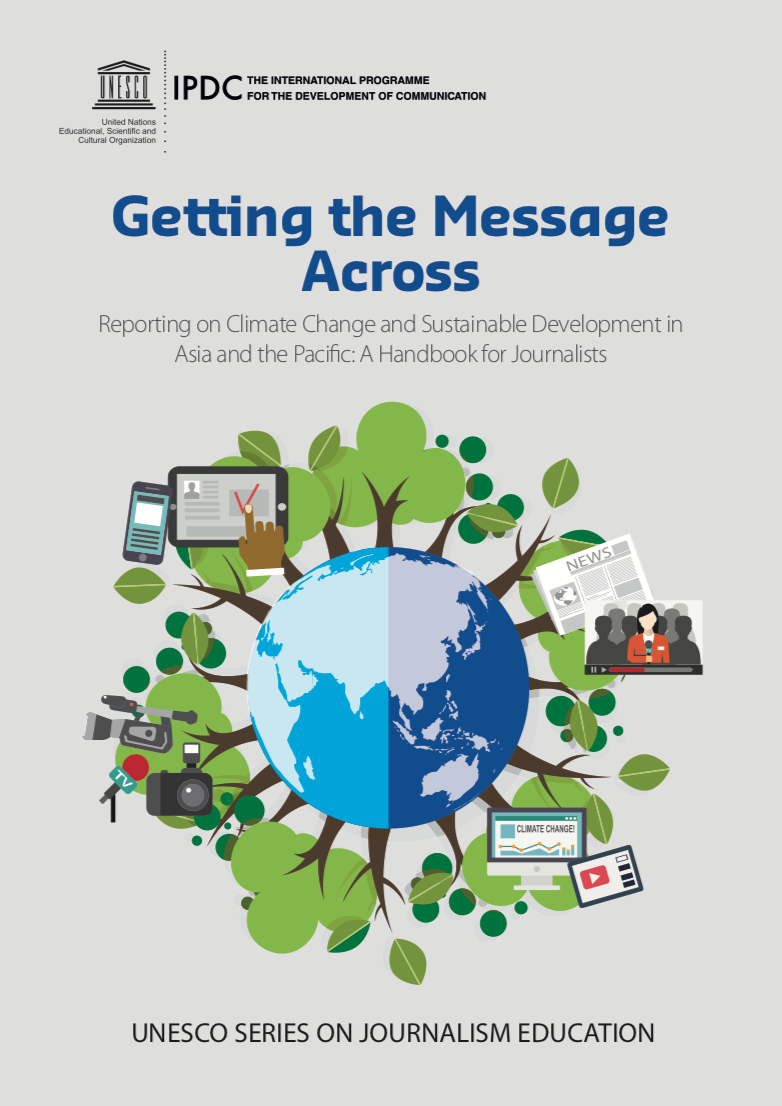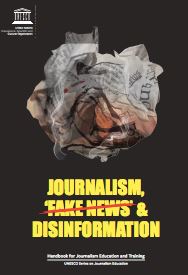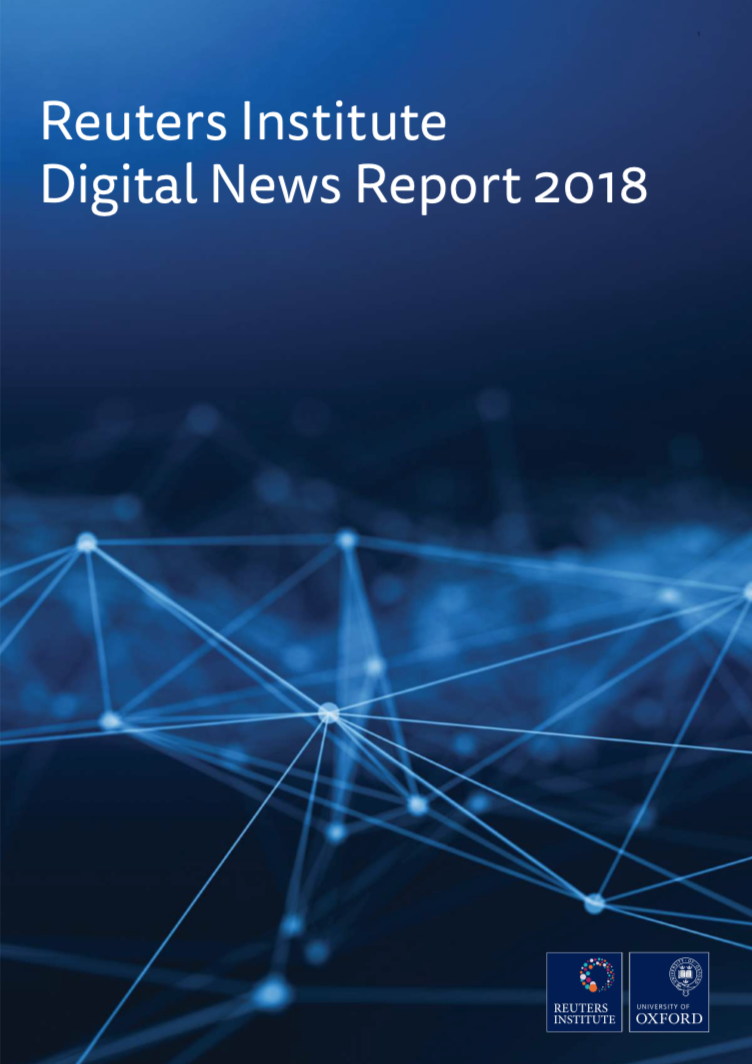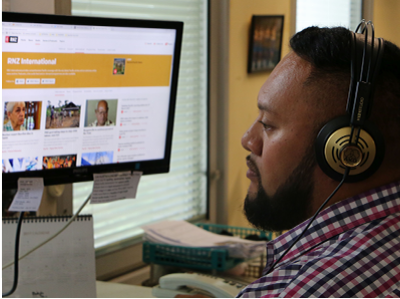News media broadly trusted, views of UK government response to COVID-19 highly polarised
News media broadly trusted, views of UK government response to COVID-19 highly polarised
REPORT
This Reuters Institute factsheet is the first of the UK COVID-19 news and information project and explores how people navigate news and information in the UK during the COVID-19 pandemic.
“In this RISJ Factsheet we examine people’s attitudes towards how news organisations, government and other institutions are responding to the coronavirus pandemic in the UK based on a survey fielded from 10 April to 14 April.” – Reuters Institute for the Study of Journalism
Types, sources, and claims of COVID-19 misinformation
Types, sources, and claims of COVID-19 misinformation
REPORT & WEBSITE
A Reuters Institute factsheet identifying some of the main types of misinformation shared during the COVID-19 pandemic
“In this factsheet we identify some of the main types, sources, and claims of COVID-19 misinformation seen so far. We analyse a sample of 225 pieces of misinformation rated false or misleading by fact-checkers and published in English between January and the end of March 2020, drawn from a collection of fact-checks maintained by First Draft.” – Reuters Institute.
Trust in Media
REPORT
Trust in Media
Public Service Media are the most trusted source for news in 61% of European countries according to this EBU report.
European Broadcasting Union
“This report brings you insights on how people are turning to public service media news content as an essential trusted source at a time of crisis such as COVID-19.”
The new 2020 Trust in Media report includes an infographic and the dataset. Open access, login required.
The Journalism AI
REPORT
The Journalism AI
Charlie Beckett
Abstract
The Journalism AI report is based on a survey of 71 news organisations in 32 different countries regarding artificial intelligence and associated technologies. A wide range of journalists working with AI answered questions about their understanding of AI, how it was used in their newsrooms, and their views on the wider potential and risks for the news industry.
First Draft’s Essential Guide to Responsible Reporting in an Age of Information Disorder
First Draft’s Essential Guide to
REPORT
Responsible Reporting in an Age of Information Disorder (PDF)
First Draft
Abstract
This guide helps to spark discussions on best editorial practice in approaching and covering issues such as terrorism, conspiracy theories, manipulated content in an age of technological innovations and information disorder.
Getting the Message Across
REPORT
Getting the Message Across
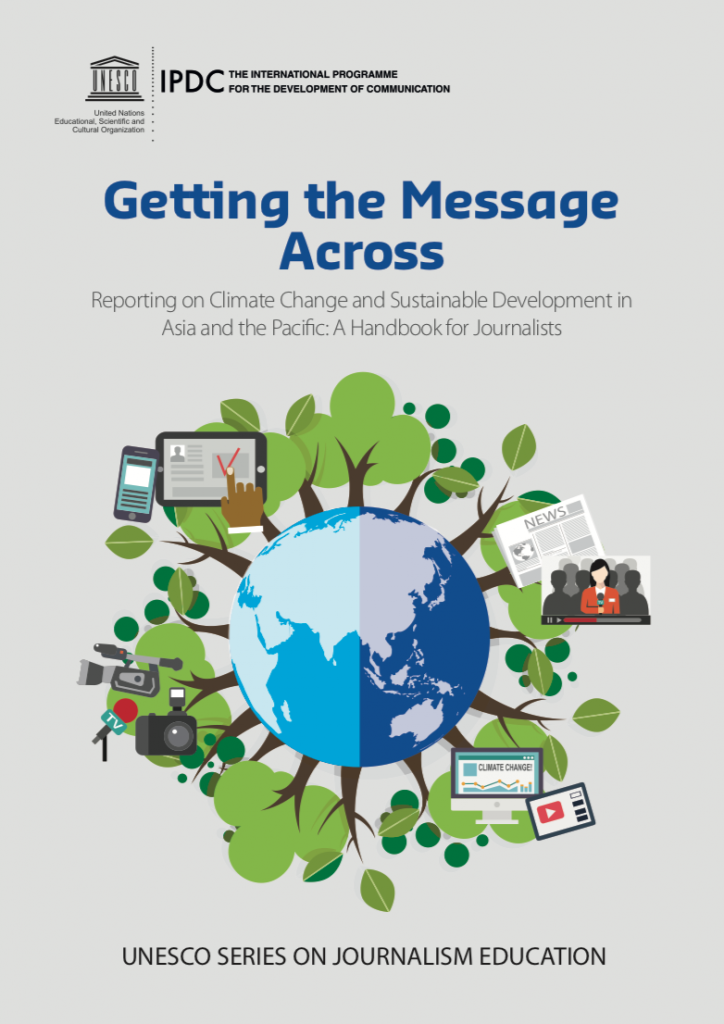
Reporting on Climate Change and Sustainable Development in Asia and the Pacific: A Handbook for Journalists
This book is a vital resource for journalists covering climate change. Through an exploration of the essential aspects of climate change, including its injustices to vulnerable communities and examples of best practice, UNESCO has published a book that effectively contextualises the severity of the issue to help journalists improve the way they report its environmental, social, economic ̧ political and technological implications.
“This Handbook is part UNESCO’s International Programme for the Development of Communication’s Series on Journalism Education. The series aims to reinforce the capacities of journalists, journalism educators and their institutions to promote sustainable development, by enhancing the abilities of journalists to report on science, development and democratic governance.”
Journalism, 'Fake News' and Disinformation: A Handbook for Journalism Education and Training
REPORT
Journalism, ‘Fake News’ and Disinformation: A Handbook for Journalism Education and Training (UNESCO)
This recent publication explores the key feature of journalism and seeks to guide readers on how to best navigate the news environment and fight against misinformation.
As journalism is constantly transformed and challenged by a wide range of factors, such as technology, politics and users interaction with the media, understanding how journalism works it’s becoming essential.
Written by experts from all around the world and published by UNESCO, this handbook includes modules on trust, critical thinking and social platforms, media literacy, fact checking and combating online abuse.
Given its structure, this handbook is particularly useful for journalism educators as well as media professionals and editors and all those interested in how information is shared and used.
RISJ Digital News Report 2018
REPORT
RISJ Digital News Report 2018
This year’s edition of the ever comprehensive Reuters Institute Digital News Report highlights a fall in the use of social media for news in a number of key markets
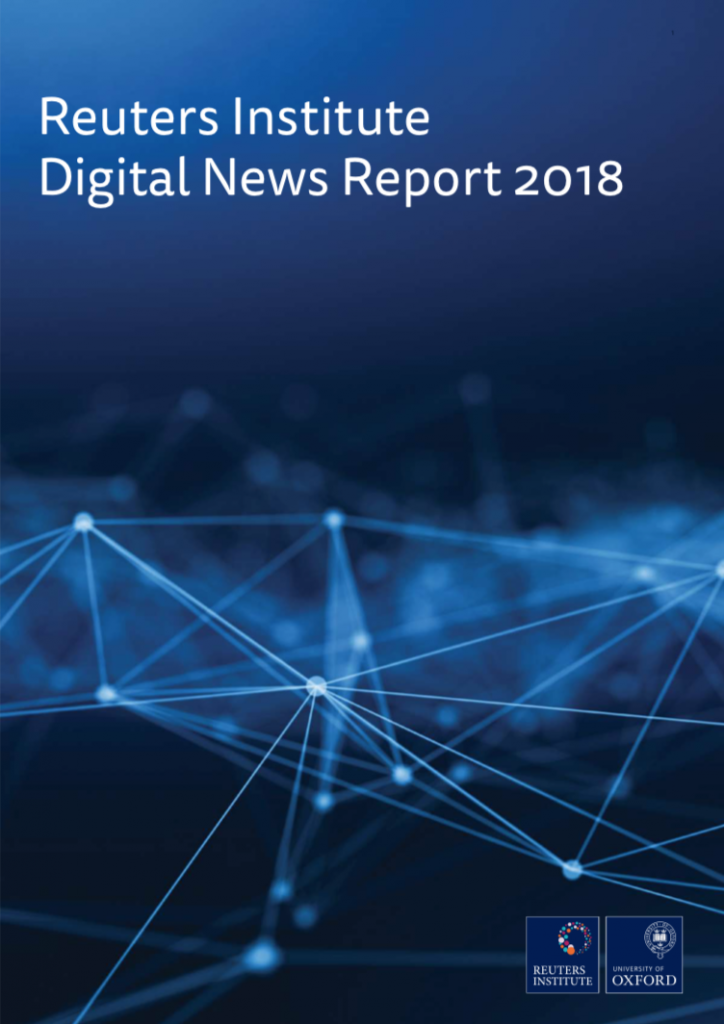
The extensive report is based on an online survey of 74,000 people from 37 countries, across five continents, and explores issues such as trust in the media, disinformation, viewing trends, podcasting and ad-blockers to name but a few. It also includes new literacy and brand trust for the first time.
A major finding in this year’s report is that the use of social media for news has significantly declined in France, the UK and the USA – the latter being down six percent. According to a summary by report author Nic Newman, the decline is due to a decrease in the discovery, posting, and sharing of news in Facebook. However, there has been a significant rise in the use of private messaging apps as a means to communicate, share and discuss news stories.
Other findings include a relatively stable average level of trust in news, with 44% of respondents claiming they trust it overall. This declines to 34% if referring specifically to news found via a search engine and 23% if found via social media.
With regards to fake news, the survey found that just over half of respondents are concerned about fake news, with the highest percentages found in countries with the “most polarised political situations”. 75% of respondents also believe that responsibility to fix unreliable news lies with publishers, while 71% believe the same for platforms, with some appetite for government intervention.
Find out more about this in-depth report by following the link below.
Humanitarian Journalism
WEBSITE
Text from Humanitarian Journalism:
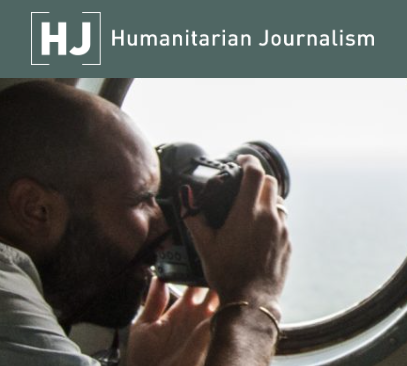 The Humanitarian Journalism project is seeking to better understand how the news media report on humanitarian crises and what shapes their coverage.
The Humanitarian Journalism project is seeking to better understand how the news media report on humanitarian crises and what shapes their coverage.
We are seeking to map the sub-field of humanitarian journalism and in doing so, further investigate:
1) How journalists define humanitarian news
2) How such news is shaped by political, economic and technological factors
3) What the impact of humanitarian news is on the humanitarian sector
This project is an interdisciplinary, multi-institutional collaboration that draws on newsroom ethnography, interviews and content analysis. Please get in touch if you have any questions about our work. Further details about the research team, our outputs, publications and partners can be found on this site.
The project is primarily a collaboration between Dr Mel Bunce (City, University of London), Dr Martin Scott (University of East Anglia) and Dr Kate Wright (Edinburgh University). Click on the link below to find out more and access resources.
The Public Media Alliance is an institutional partner of Humanitarian Journalism.
Featured Image: The NORAD of ABC in Austin. Image: Trey Ratcliff/Creative Commons
PSM research websites
WEBSITE
Are you interested in public service media (PSM) research? Are you struggling to find specific research articles related to contemporary PSM around the world?
Here you will find a number of recommended organisations that specialise in PSM and other relevant media research. Their websites play host to a wealth of publications, event listings and PSM research news.
Where possible we will link to organisations that make their research publicly available.
Remember to explore PMA’s Knowledge Hub for our recent publications, recommended articles and research news from around the world.
Deutsche Welle Akademie
DW Akademie is Germany’s leading organization for international media development. It supports the development of free and transparent media, quality journalism, and also offers programmes to boost media skills.
The Akademie offers a range of training opportunities for journalists and media organisations as well as clients from politics, business and civil society. Its Master’s degree program , “International Media Studies”, combines the disciplines of media and development, journalism, communication studies and media management.
Beyond media training, DW Akademie runs a variety of media development projects and research programmes around the world, with further efforts to promote media freedom and freedom of expression.
Its website hosts a number of articles and reports relevant to public media, such as In Service of the Public. You can find a wealth of other media development articles and publications here.
For more information, click here.
ECPMF & OBCT Resource Centre
An open and growing resource website developed by Osservatorio Balcani e Caucaso Transeuropa (OBCT) and the European Centre for Press and Media Freedom (ECPMF).
The site has a broad range of resources ranging from academic papers to legal tools and practical instruments for training purposes. The resources are curated with a focus on Europe and issues surrounding democracy and particularly media freedom in the region.
Despite being launched in 2015 there are already over one thousand resource items available.
For more information, click here.
Global PSM Experts Network/PMR
The Global PSM Experts Network is a joint project of the EBU and the RIPE network which operates as a platform for bringing together researchers and experts of public service media around the world.
‘This Network will merge with the International Association of Public Media Researchers (PMR). PMR will be an association for scholars and industry experts who support Public Media worldwide. It’s a continuation of the RIPE network and, just like RIPE, will feature an online community, a bi-annual conference jointly hosted by a university and their local public service media, and a biannual edited collection of the most world-leading scholarly work for the year of publication.
The activities include:
– Bi-annual conferences
– Related open-access Readers by Nordicom
– Discussions and information exchanges in our social media communities on Facebook and Twitter
For more information, click here to access the network’s Facebook group whilst they launch their new website.
InnoPSM
Innovation in Public Service Media Policies (InnoPSM) is a new ARHC-funded research network, which uses a multi-stakeholder approach to bring together academic experts, practitioners and policymakers with a shared interest in PSM to discuss global, ‘innovative policy solutions and strategies’ to confront the contemporary challenges facing PSM in the digital age.
Read PMA’s report on InnoPSM’s launch and activities here.
NHK Broadcasting Culture Research Institute
Founded in 1946, The NHK Broadcasting Culture Research Institute was the “first facility for comprehensive research to be operated by a broadcasting station”.
Operated by Japanese PSB NHK, the institute conducts research into various media and social fields to deepen and enrich the quality of broadcasting culture in Japan, the Pacific region and worldwide. Its website hosts an extensive catalogue of open-source research reports and publications, with many available in English. According to the institute;
“The findings, which are made public, not only contribute to better NHK programming and program production, but also modify the basic framework of public broadcasting. The Institute suggests how broadcasting might change in the digital era and analyzes new broadcasting services.
The Institute surveys public opinion to generate data that can be used when preparing programs and publications, as well as in other planning activities. The Institute also conducts research on survey methods and data analysis.”
For more information, click here.
Nordicom
NORDICOM is a knowledge centre in the field of media and communication research – a cooperation between Denmark, Finland, Iceland, Norway and Sweden.
Research at Nordicom is focussed on three core working areas: Media and Communication Research Findings in the Nordic Countries, Trends and Developments in the Media Sectors in the Nordic Countries and Research on Young People and Media Worldwide.
Their website plays host to a variety of open source and paid-for research publications and journal papers, with frequent calls for papers. According to Nordicom they specialise in the following:
“Starting from academic research, Nordicom collects and adapts knowledge, mediating it to various user groups in the Nordic region, Europe and elsewhere in the world. Nordicom is an institution under the auspices of the Nordic Council of Ministers.
Nordicom’s work aims at developing media studies and at helping to ensure that research results are made visible in the treatment of media issues at different levels in both the public and private sector. Nordicom’s activities are based on broad and extensive network of contacts and collaboration with members of the research community, media companies, politicians, regulators, teachers, librarians, and so forth, around the world.”
To find out more click here.
RIPE
The initiative for Re-Visionary Interpretations of the Public Enterprise (RIPE) is a non-profit international network of scholars and practitioners involved with the study, development and management of public service media organisations.
RIPE is an international project that is dedicated to reinventing, redefining, and recreating the meanings and practices of public service in media for the 21st century. Although many of the original conceptualisations of public media have continuing relevance today – despite rapid and sweeping changes – it is crystal clear that conditions, needs and situations are much different and more varied today when compared with the realities that legitimated the heritage approach that was developed in the early to mid-20th century in Western Europe.
RIPE has an astounding source of globally sourced and open articles on its website and hosts a biennial conference that brings together research contributors, PSM specialists and other contributors to discuss the current and future PSM landscape worldwide.
To find out more and access RIPE’s extensive research archives, click here.
